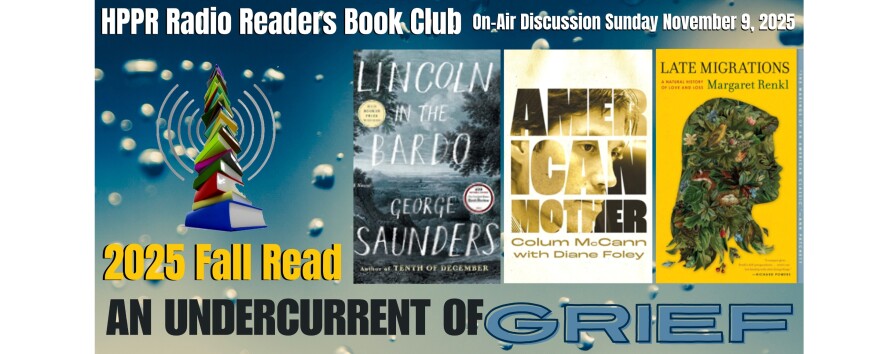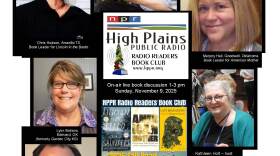This book may contain language, sexual content, and themes of grief and loss, which may be challenging for some readers. Reader caution advised.
It Takes Courage
by Clifton Butt
Hello everyone, this is Clifton Butt, an English teacher in Amarillo, Texas. I'm here to briefly discuss American Mother by Column McCann with Diane Foley.
Before starting this book, I only had vague memories of James Foley, his capture, and his execution at the hands of ISIS in 2014. This may be due to my prudent refusal to watch the video of his execution knowing that those images would never leave my mind if I did so. But I am glad I read this book and re-encountered the life of James Foley and his mother Diane.
It is not wise to predict the future, but I am reasonably confident that any grief headed my way will not look like hers. As someone without children, the grief that follows losing a son in any circumstance is incomprehensible to me. The grief that follows losing a son in such a public way is even more so. And to lose someone, not at the hands of an accident, disaster, or disease, but instead by a willful act of violence is even more incomprehensible still.
To more fully understand her son, Diane Foley took the extraordinary step of meeting with one of her son’s torturers and killers. She waded through that man’s half-truths and equivocations seeking some truth of her son’s final months and moments. She did that as an act of love for her son, as doing so might allow her to understand him more fully. That understanding, that knowing, that fullness is what love is. To fully see someone is an act of love. Of course, this is also what James Foley set out to do with his journalism. And, her step to understand her son by speaking with his captor, creates an understanding of the captor himself, thereby creating a bond that is hard to deem as love, but may be something close to that.
Understanding requires truth. And truth feels harder than ever to come by in 2025. Diane Foley says that there is no such thing as singular truth and instead refers to truth as being “kaleidoscopic” and “cumulative.” All the tragedies of the world have an infinite number of determinants, and there will be an infinite number of consequences as things ripple outward. Early on in the book Diane Foley realizes that “Nothing ever ends really. But perhaps something good can come of it.”
Whatever that good may be, it is going to require us to find the “moral courage” of James and Diane Foley. To navigate grief and build something that can survive it, takes acting with courage. If, as she says, “nothing ever ends really,” that means whatever we do with the courage we can muster will ripple outward just as the tragedies do. Somehow holding onto the hope that something good can come of all this, even through the depths of grief, is vital.
If nothing else, the good that comes out of this book is getting to know James and Diane Foley. It is a small, but glorious thing to understand at least part of their lives. The book begins with an epigraph that is a quote from Thomas Campbell which says, “To live in the hearts we leave behind is to not die.” I’m glad I read this book and have had the lives of James and Diane Foley ripple outward into mine.
Thank you for listening to this BookByte by me, Clifton Butt. I hope you keep your head up and your heart open out there on the High Plains.










